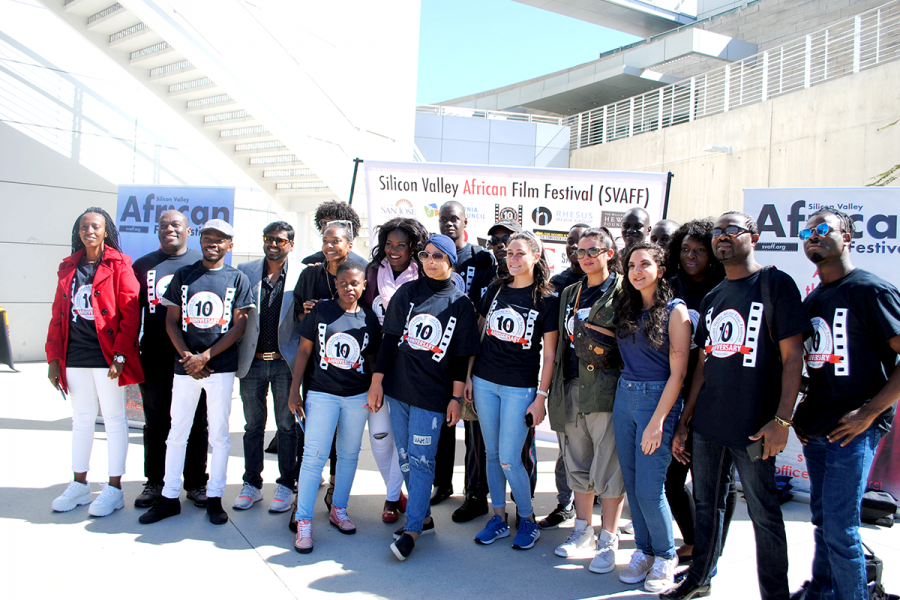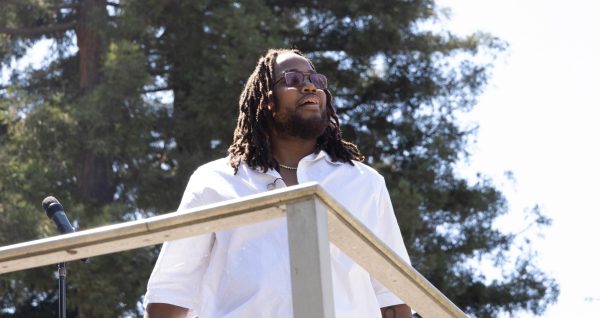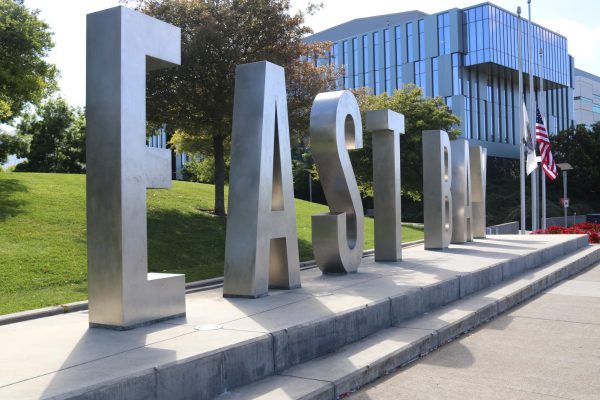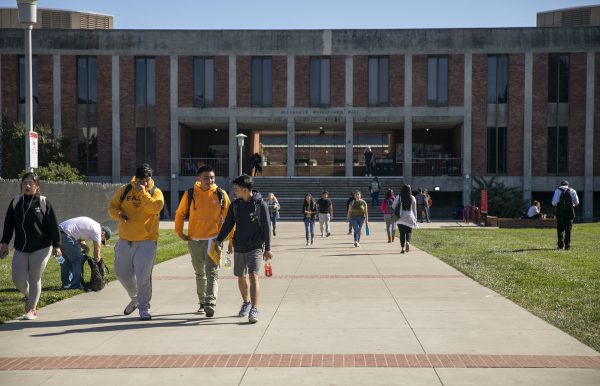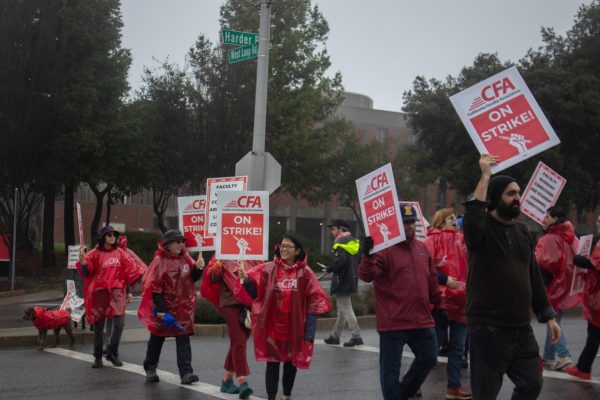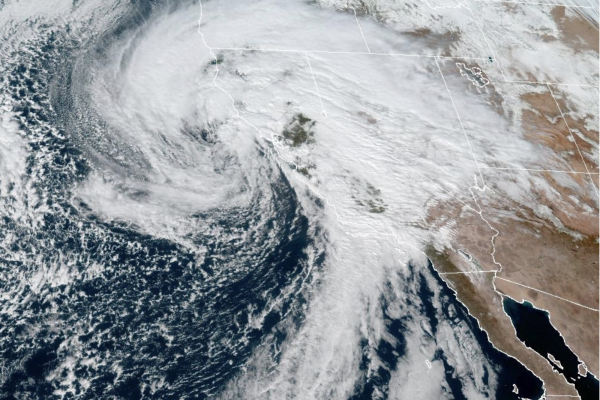African filmmakers take center stage at 10th SVAFF
October 10, 2019
Every country on this planet is a land rich with culture. The stories that we pass down to the younger generation aren’t just stories, they connect us to a part of ourselves we tend to forget is there. As time moves on, and as cultures blend, we begin to lose that connection that we held dear for so long. Now it has come to a point where our own stories are being told by those who do not truly understand it.
For decades, the stories and images that have been associated with Africa are narrated by foreign and distorted lenses that are far removed from Africa itself.
Since its birth in the early 20th century, African cinema has undergone a major transformation from its colonial roots to its independence. When African filmmakers emerged onto the scene in the 1960s, they sought to depict real stories that mirror an authentic version of Africa amid its political, social, and economic changes.
Now celebrating its tenth year, the Silicon Valley African Film Festival, the only film festival in California that focuses exclusively on films made by African filmmakers, aims to present Africa through an African perspective.
The festival offered a spectacular line-up of 85 films from 35 countries to be showcased throughout the weekend. Films were divided into three genres which include documentary, narrative, and animation. Founded and directed by award-winning Nigerian filmmaker Chike Nwoffiah, the SVAFF has rightfully carved its place into the arena of American film festivals.
“When we come from Africa to this part of the world, there is this shocking perception of the countries we come from that is even strange to us. I call it the “Tarzan narrative of Africa” and the “National Geographic narrative of Africa,” Nwoffiah said.
The vast western media, which includes Hollywood and The National Geographic, played an explicit part in the way it has historically portrayed Africa as backward and unchanging while glorifying the west.
“So I began the SVAFF because I wanted to create a forum for filmmakers and storytellers from the continent that are doing amazing work but never get the opportunity to get their films screened,” Nwoffiah explained.
Nwoffiah revealed that SVAFF has received over 1,300 submissions. She went on to explain the selection process the festival committee goes through before selecting the 85 films that were screened.
“When we evaluate a film, we look at the story and the heart behind it,” Nwoffiah said. “Yes, there are films that are not of technical quality and we are conscious of that. Some films are not done with a high budget but there is a story there waiting to come out.”
This year’s opening night feature film was “Veronica’s Wish” starring, written and produced by 26-year-old Ugandan award-winning actress and filmmaker Nisha Kalema. Kalema was born in the suburbs of Kampala in 1993 and was the only child of her parents. She began her career as an actress and has won several awards for her role as Grace in the film “The Tailor” (2015) and her role as Amelia in the film “Freedom” (2016), for which she had written the screenplay.
Kalema wrote her second screenplay “Veronica’s Wish,” which made its North American debut at SVAFF last weekend. The film tells the story of a loving couple Veronica and Michael, who are engaged to marry when their lives take a drastic turn as Veronica is diagnosed with late-stage cancer just a few days from their wedding day. The film is based on a true story of a Ugandan woman and aims to raise global education and awareness for cancer screenings, especially in Africa.
“Where I come from in Uganda, cancer is something you just talk about. When someone dies of cancer, you express how unfortunate that is but we never actually think about getting tested for it. It’s not in our nature, we’d rather get tested for anything else other than cancer,” Kalema said.
In a recent report by The Catalan Institute of Oncology, it was revealed that cervical cancer is the leading cause of cancer death amongst women in Uganda.
“So I thought maybe if a movie like this gets out there and somebody watches it, it would perhaps make them think about getting tested,” Kalema said in an interview.
The Ugandan parliament confronted those public health concerns in 2016 when they passed Uganda Cancer Institute Bill which looks to coordinate cancer prevention and treatment programs and facilities.
“Veronica’s Wish” incorporated impactful elements of social activism and social justice, where despite Veronica’s abrupt death, she leaves behind an important legacy in Ugandan public health.
Additionally, the second-day feature film was “Jomako-Black Democracy” starring and directed by Abraham Kabwe from Zambia. The film tells the story of a local artist who stands up to challenge politicians on the poverty levels in Zambia but gets imprisoned for gathering support from the people in an attempt to restore democracy in the nation.
One of the recurring themes in the film was the political censorship of the main character, Jomako. Kabwe shared more information on how the extreme censorship in Zambia has affected his filmmaking and post-production process.
“During the production process, we had shot in one place and we constantly had to change up the set. After we finished filming, we could not premier the movie in my own country even till this day,” Kabwe said in an interview.
Over the years, the SVAFF has provided an important platform for films similar to “Jomako-Black Democracy” that reflect the changing values of the people but continue to be censored and singled out by their own governments.
The festival has also garnered enormous national and international attention in recent years. This year, SVAFF awarded the former deputy Prime Minister of the Bahamas Rev. Dr. Cynthia Mother Pratt the Cultural Icon Award in recognition of her inspirational contributions to the world.
Festival director Chike Nwoffiah reflected on the growth of the festival as they prepare to hit more milestones in the forthcoming years.
“We have been on an incredible trajectory since the beginning days of the festival to this milestone year. By the fifth year we began to expand a little bit, we added the idea of an African market and African cuisine. By the 10th year, we added a fashion show, as well as a discussion panel. So as we move from the 10th to the 15th year we know we have the capacity to give people an incredible cultural experience,” Nwoffiah said.




